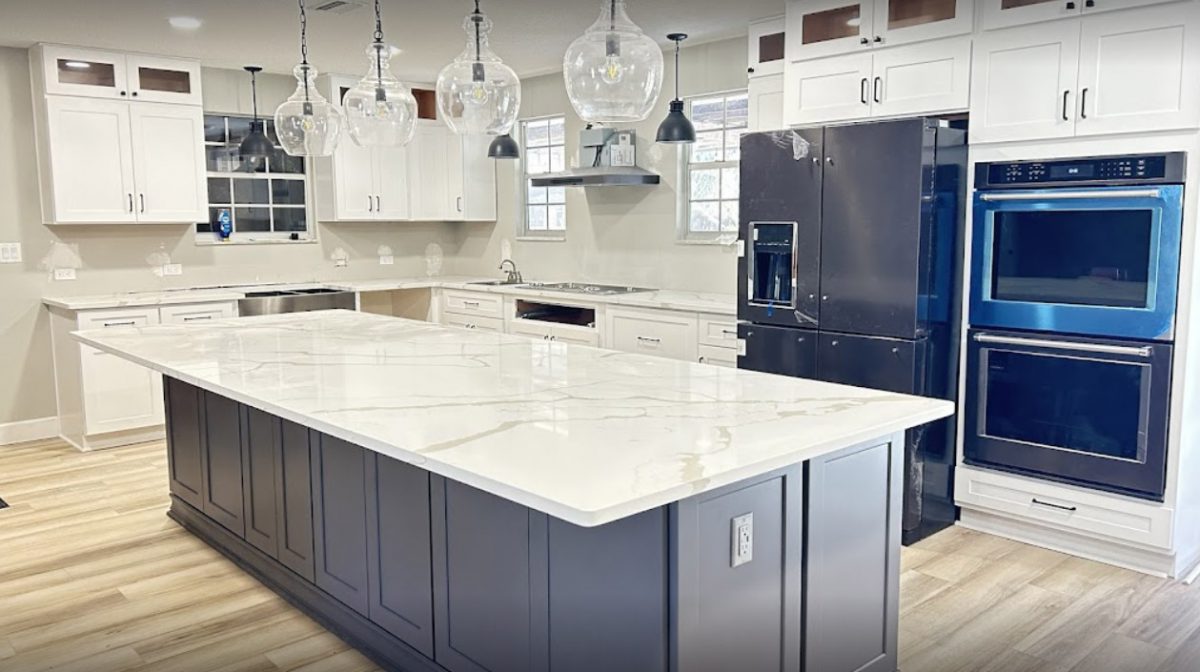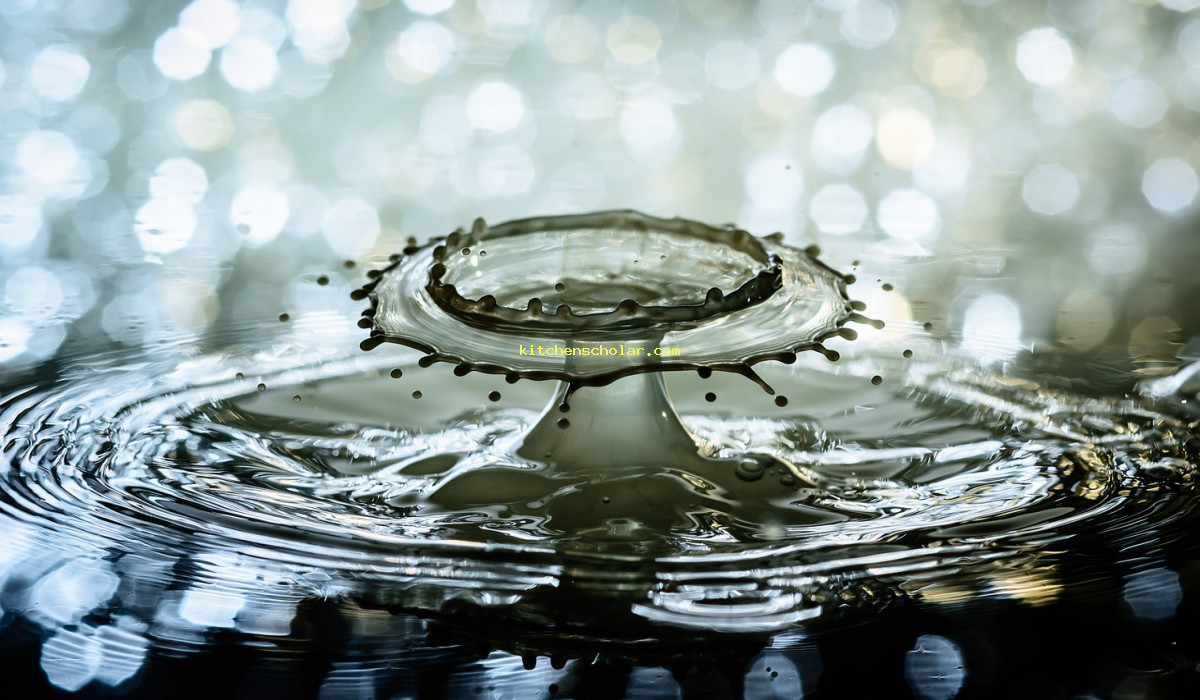Discover the Surprising Truth: Kitchen vs Bathroom Tap Water – Which is Better?. Discover the difference between kitchen and bathroom tap water and which is better for your daily needs. From cooking to skincare, find out which tap water is the best choice for your household. Read on to learn more!
Kitchen vs Bathroom Tap Water
Discover the Surprising Truth: Kitchen vs Bathroom Tap Water – Which is Better?
Discover the Surprising Truth: Kitchen vs Bathroom Tap Water – Which is Better?. From cooking to Discover the Surprising Truth: Kitchen vs Bathroom Tap Water – Which is Better?

Kitchen vs Bathroom Tap Water: What’s the Difference?
In today’s world, water is readily available in almost every household. From faucets to refrigerators to water bottles, we have many options for quenching our thirst. However, have you ever noticed that the water coming from your kitchen tap differs from that in your bathroom? This may leave you wondering – what’s the difference between kitchen and bathroom tap water? In this article, we will explore the distinctions between these two sources of tap water and answer some common questions related to their usage, quality, and more.
What is Tap Water?
Tap water is the water that comes directly from your faucet. It is sourced from either surface water (lakes, rivers, and streams) or groundwater (wells and aquifers). It then goes through a treatment process to remove impurities and make it safe for consumption. After treatment, tap water is tested to ensure it meets safety standards set by the Environmental Protection Agency (EPA), such as the Safe Drinking Water Act. From there, it is distributed to our homes through a complex water supply system.
Kitchen Tap Water
Kitchen tap water is the water that comes from your kitchen faucet. It is often used for drinking, cooking, and cleaning. It is typically sourced from the same place as bathroom tap water and goes through the same treatment process. However, there are a few key differences between kitchen and bathroom tap water that may affect its taste, quality, and purpose.
H2 Bathroom Tap Water
Bathroom tap water, on the other hand, is the water that comes from your bathroom faucet. It is mainly used for personal hygiene purposes, such as brushing teeth and washing hands. Unlike kitchen tap water, bathroom tap water may not always be designated for drinking, depending on where you live. Some households have a separate tap specifically for drinking water, while others do not. Additionally, bathroom tap water may be subject to more contaminants due to its proximity to household cleaning products and personal care items.
Why Does Kitchen Tap Water Taste Different Than Bathroom Tap Water?
While most of us may not notice a significant difference in taste between kitchen and bathroom tap water, there are some reasons why it may vary. These include:
1. Different Pipes
The water in your kitchen and bathroom may travel through different pipes to reach your faucet. These pipes can be made from various materials, such as copper, plastic, or lead. The material and age of the pipes can affect the taste and quality of the water. For example, lead pipes can leach into the water and cause it to taste different. This is why it is important to have your water tested if you are unsure about the quality of your pipes.
2. Distance from Source
The distance from the water’s source to your kitchen or bathroom can also impact its taste. If your kitchen is closer to the water treatment plant, the water may be fresher and have less time to pick up any potential contaminants.
3. Household Contaminants
As mentioned earlier, bathroom tap water may be exposed to more household contaminants, such as cleaning products and personal care items. These can affect the taste, smell, and quality of the water. On the other hand, kitchen tap water may be kept in a cleaner environment with minimal exposure to such contaminants, resulting in a fresher taste.
Is One Type of Tap Water Healthier Than the Other?
Both kitchen and bathroom tap water go through the same treatment process and are regulated by the EPA. Therefore, in terms of health, there should not be a significant difference between the two. However, it is essential to note that the quality of tap water can vary depending on where you live. Some areas may have better water treatment plants or stricter regulations, resulting in higher-quality tap water.
Can I Use Bathroom Tap Water for Cooking and Drinking?
The answer to this question depends on where you live. As mentioned earlier, some households have a separate tap specifically designated for drinking water. In this case, it is not recommended to use bathroom tap water for cooking and drinking. However, if your household does not have a designated tap, it is generally safe to use bathroom tap water for cooking and drinking. It is important to keep in mind that the quality of tap water can vary, so it is always a good idea to have it tested for any potential contaminants.
Kitchen vs Bathroom Tap Water Quality
The quality of tap water can vary depending on where you live, your household’s water supply system, and the source of water. However, both kitchen and bathroom tap water must meet the safety standards set by the EPA. This includes testing for bacteria, lead, and other contaminants. It is essential to have your water tested regularly if you have any concerns about its quality or if you live in an area with older pipes. Additionally, using a water filter can help improve the taste and quality of tap water.
Which Tap Water is Best for Plants?
Plants can be sensitive to the quality of water used to water them. In general, kitchen tap water is better for plants, as it may have fewer contaminants compared to bathroom tap water. The chemicals found in some household cleaning products and personal care items may be harmful to plants, affecting their growth and well-being. However, it is always best to check the quality of tap water and use a water filter if needed to ensure the health of your plants.
Is Boiling Tap Water Enough to Make it Safe for Consumption?
Boiling tap water can kill harmful bacteria and most microorganisms, making it safer for consumption. However, this does not remove other contaminants, such as lead or chemicals. It is crucial to have your tap water tested and use a water filter if needed to ensure its safety for drinking and cooking purposes.
How to Improve the Taste of Tap Water?
If you notice that your tap water tastes different, there are a few things you can do to improve its taste, including:
1. Use a Water Filter
A water filter can remove impurities and improve the taste of tap water. There are different types of water filters available on the market, such as pitcher filters, faucet filters, and under-sink filters. These can effectively remove contaminants and enhance the taste of your tap water.
2. Add a Slice of Citrus Fruit
Adding a slice of lemon, lime, or orange to your tap water can give it a fresh and citrusy taste. This is a natural way to improve the flavor of your water without adding chemicals or artificial flavors.
3. Let it Sit for a While
If you are using tap water for drinking, you can let it sit for a while to allow the chemicals to dissipate and make it taste better. This is similar to letting a glass of wine breathe before drinking it.
4. Use a Water Dispenser
A water dispenser is a great option for those who prefer a cleaner and fresher tasting water. These machines can filter tap water and dispense it chilled or hot, depending on your preference. They are convenient, easy to use, and can help improve the taste of tap water.
Discover the Surprising Truth: Kitchen vs Bathroom Tap Water – Which is Better?
Discover the difference between kitchen and bathroom tap water and which is better for your daily needs. From cooking to skincare, find out which tap water is the best choice for your household. Read on to learn more!. water Discover the Surprising Truth: Kitchen vs Bathroom Tap Water – Which is Better?

Kitchen vs Bathroom Tap Water:
When it comes to tap water, there are often debates about the quality and safety of the water in different areas of the home. One of the most common debates is whether the tap water in the kitchen is better than the tap water in the bathroom. Many people believe that the kitchen tap water is cleaner and safer to drink and use for cooking, while others argue that the bathroom tap water is just as clean. Kitchen vs Bathroom Tap Water, which one is really better? Let’s dive into the details and see what sets kitchen tap water apart from bathroom tap water.
The Differences Between Kitchen and Bathroom Tap Water:
While it may seem like all tap water should be the same, there are actually some key differences between the water that comes out of your kitchen tap and the water that comes out of your bathroom tap. These differences can impact the quality, taste, and safety of the waterKitchen vs Bathroom Tap Water.
1. Source of Water:
Kitchen tap water is often sourced from the main water line that enters your home. This water is typically treated and filtered before it reaches your kitchen faucet. On the other hand, bathroom tap water is usually sourced from a separate line that connects directly to your home’s toilet, shower, and sink. This water may not go through the same treatment and filtration processes as the kitchen tap water.
2. Water Pressure:
The water pressure in your kitchen and bathroom may also be different. In most homes, the kitchen tap has a higher water pressure due to its proximity to the main water line. This can affect the way the water tastes and how well it can clean your dishes.
3. Cross-Contamination Potential:
Kitchen tap water also has a lower potential for cross-contamination compared to bathroom tap water. This is because the kitchen tap is usually used for drinking water and cooking, while the bathroom tap is used for a variety of purposes, including washing handsKitchen vs Bathroom Tap Water, brushing teethKitchen vs Bathroom Tap Water, and cleaning.
The Pros of Kitchen Tap Water:
1. Treated Water:
Since kitchen tap water is sourced directly from the main water line, it usually goes through a series of treatment processes, including filtration, disinfection, and pH balancing. This means that kitchen tap water is generally cleaner and safer for consumption.
2. Convenience:
Having access to clean and safe drinking water directly from your kitchen tap is incredibly convenient, especially if you have a water filter or purifying system installed. This eliminates the need for buying bottled water and reduces plastic waste.
3. Taste:
The treated and filtered water from your kitchen tap also tends to have a better taste compared to bathroom tap water. This is especially noticeable when cooking or making hot beveragesKitchen vs Bathroom Tap Water, where the taste of the water can affect the final product.
The Cons of Kitchen Tap Water:
1. Cost:
While kitchen tap water may be cleaner and safer for consumptionKitchen vs Bathroom Tap Water, it does come at a cost. Households with high water consumption may see a significant increase in their water bill due to the treatment processes and filtration systems used for kitchen tap water.
2. Maintenance:
Maintaining a water filtration or purification system for your kitchen tap water can be time-consuming and costlyKitchen vs Bathroom Tap Water. Filters and cartridges need to be replaced regularly, and purification systems may require professional maintenance.
3. Not All Kitchens Have Clean Tap Water:
Unfortunately, not all households have access to clean and safe kitchen tap water. In some areas, the main water line may be outdated or damagedKitchen vs Bathroom Tap Water, resulting in poor water quality. In these cases, investing in a water filter or purification system may be necessary.
The Pros of Bathroom Tap Water:
1. Cost-Effective:
Bathroom tap water tends to be cheaper than kitchen tap water since it does not go through the same filtration and treatment processes. This can be beneficial for households on a budgetKitchen vs Bathroom Tap Water.
2. Cross-Contamination Prevention:
While cross-contamination potential may be a con for bathroom tap water, it can also be a pro. Using a separate water line for washing hands and brushing teeth can help prevent the spread of germs and bacteria.
3. Water Pressure:
In some cases, the lower water pressure in bathroom taps can be beneficial. For exampleKitchen vs Bathroom Tap Water, if you are washing your face or brushing your teeth, a lower water pressure can help prevent splashing and make the task easier.
The Cons of Bathroom Tap Water:
1. Potential for Unsafe Water:
Since bathroom tap water is not usually treated and filtered, there is a higher potential for unsafe water compared to kitchen tap water. This can be a concern for households with children or individuals with compromised immune systems.
2. Taste and Odor:
Bathroom tap water may have a different taste and odor compared to kitchen tap water due to its lack of treatment and filtration. This can be off-puttingKitchen vs Bathroom Tap Water, especially for drinking and cooking purposes.
3. Inconvenience:
Using bathroom tap water for drinking and cooking purposes can be inconvenient since it requires hauling water from the bathroom to the kitchen. This can be time-consuming and can also result in water spills.
The Verdict:
When it comes down to it, both kitchen and bathroom tap water have their pros and cons. However, considering the potential for unsafe water and the convenience of having clean and treated water directly from your kitchen tap, it is safe to say that kitchen tap water is the better option. Investing in a water filtration or purification system for your kitchen tap water can also help alleviate any concerns about cost, Kitchen vs Bathroom Tap Water, and taste.
Final Considerations:
It is important to note that the quality of tap water can vary significantly, depending on where you live. Regardless of whether you use kitchen or bathroom tap waterKitchen vs Bathroom Tap Water, it is always a good idea to have your water tested regularly for any potential contaminants. This will not only ensure that you are consuming safe and clean water but also help you determine if investing in a filtration or purification system is necessary for your home. Discover the Surprising Truth: Kitchen vs Bathroom Tap Water – Which is Better?

Discover the Surprising Truth: Kitchen vs Bathroom Tap Water – Which is Better?
Does tap water taste different in the kitchen and bathroom?
Yes, tap water can taste different in the kitchen and bathroom.
Why does tap water taste different in different areas?
Tap water can taste different in different areas due to variations in the water source and treatment processes. Minerals, Kitchen vs Bathroom Tap Water, and other chemicals can also affect the taste of tap water.
Is it safe to drink bathroom tap water?
Generally, bathroom tap water is safe to drink because it comes from the same source as kitchen tap water. However, older homes may have separate pipes for the bathroom and kitchenKitchen vs Bathroom Tap Water, so it’s best to check with your local water department for confirmation.
Why do some people prefer to drink kitchen tap water instead of bathroom tap water?
Some people may prefer to drink kitchen tap water because it is believed to be fresher and colder, as the water travels a shorter distance to reach the kitchen faucet.
Does boiling tap water make it taste better?
Yes, boiling tap water can improve its taste by removing some of the chemicals and impurities. However, it may also remove beneficial minerals, so it’s best to limit boiling tap water for taste purposes.
Why does tap water have a metallic taste?
A metallic taste in tap water can be caused by the presence of high levels of minerals like iron or copper. These minerals can also discolor the water.
How can I get rid of the chlorine taste in tap water?
The chlorine taste in tap water can be reduced by using a water filter or letting the water sit in an open container for a few hours. Boiling the water may also help.
Is it normal for tap water to have a musty smell?
No, a musty smell in tap water can be a sign of bacteria growth, which can be harmful to your health. It’s best to refrain from drinking or using the water and contact your local water department for assistance.
Can tap water be the cause of skin irritation in the bathroom?
It’s possible for tap water to cause skin irritation in the bathroomKitchen vs Bathroom Tap Water, especially if the water contains high levels of minerals or chemicals. Installing a water softener or using a water filter may help alleviate this issue.
How can I ensure the cleanliness of tap water in both my kitchen and bathroom?
To ensure the cleanliness of tap water in both your kitchen and bathroomKitchen vs Bathroom Tap Water, it’s recommended to regularly change your faucet aerators and water filters, and to clean your faucets and showerheads regularlyKitchen vs Bathroom Tap Water. Discover the Surprising Truth: Kitchen vs Bathroom Tap Water – Which is Better?
